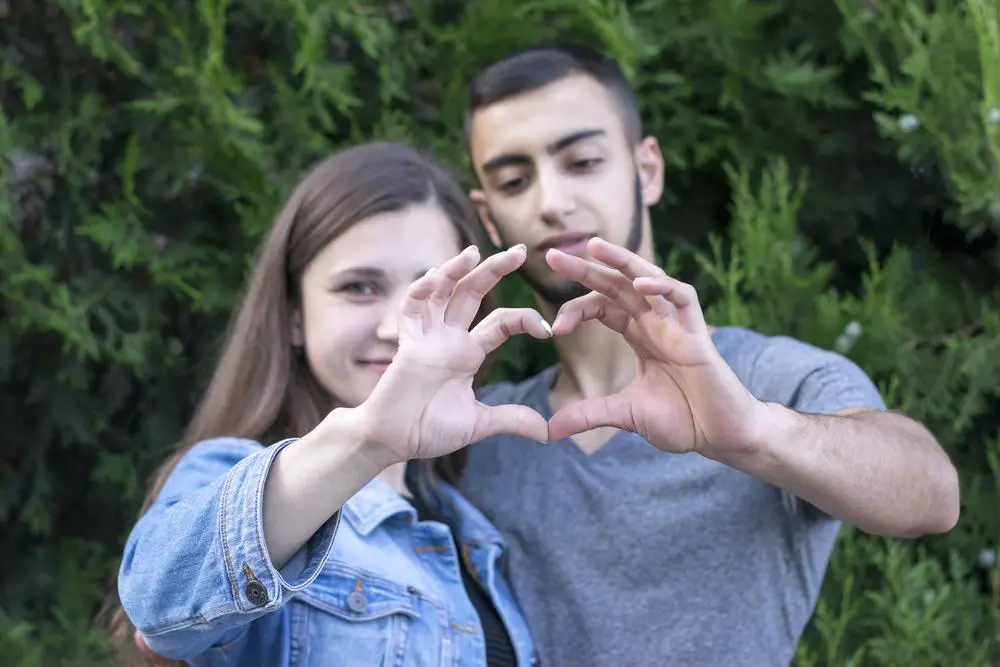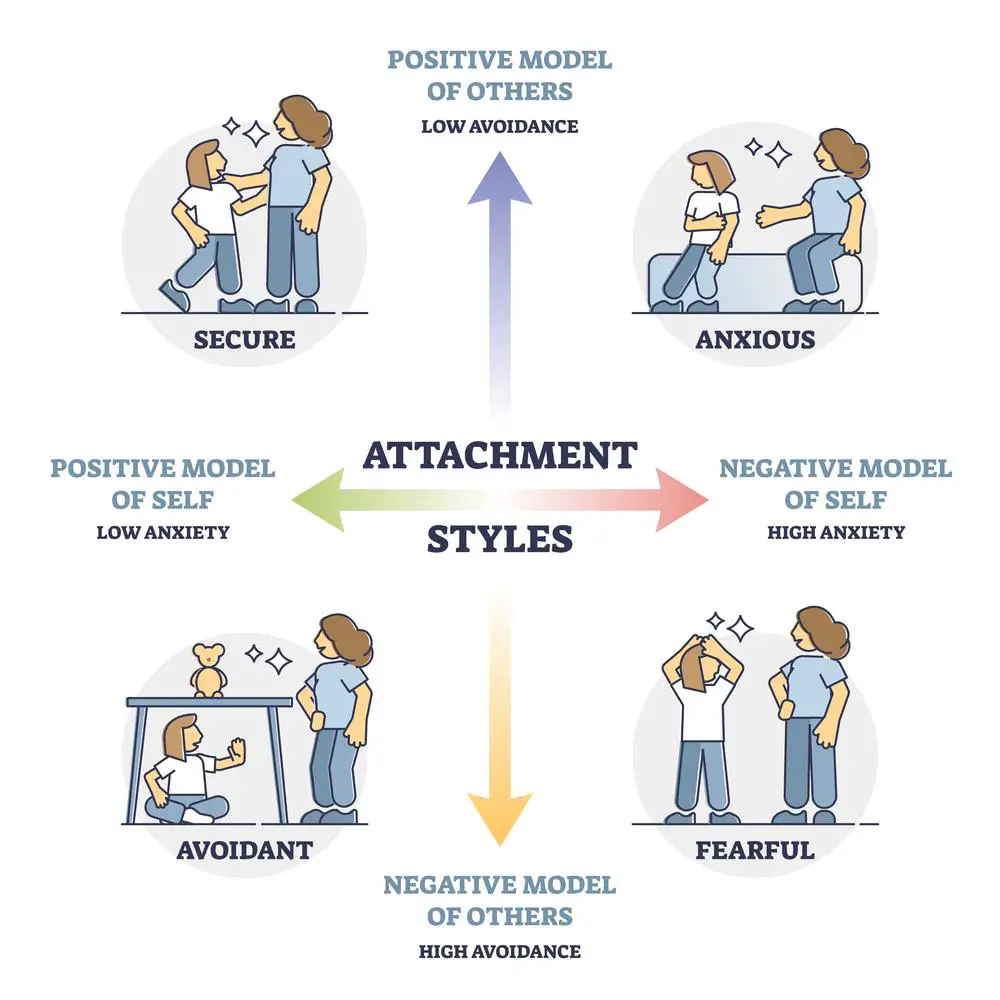To delve into the complex world of attachment styles and their influence on romantic relationships, we’ve gathered insights from three experts in the field. From a Divorce Attorney and Relationship Expert’s analysis of “Disorganized Attachment’s Impact on Relationships” to a Psychologist’s detailed exploration of “Anxious-Preoccupied Attachment”, these insights provide a comprehensive understanding of the topic.
- Disorganized Attachment’s Impact on Relationships
- Anxious-Preoccupied Attachment: Cycle of Reassurance
- Detailed Impact of Anxious-Preoccupied Attachment
 1. Disorganized Attachment’s Impact on Relationships
1. Disorganized Attachment’s Impact on Relationships
Our attachment styles—the emotional bonds with the person most responsible for our well-being as babies—can profoundly affect the health of our adult romantic partnerships.
The attachment style that creates the most issues for people is the disorganized attachment style. (Fortunately, it’s also the least common.) People with disorganized attachment tend to appear irrational and unpredictable, and their relationships are notably intense.
For example, someone with a disorganized attachment may give mixed signals—alternating between soliciting emotional closeness and pushing their partner away. This can leave their partner feeling confused and uncertain about the relationship. Because it’s challenging to predict how someone with a disorganized attachment style will react, it can create a lack of stability, security, and confidence in the partnership.
Another major issue can be conflict escalation when the partner with a disorganized attachment style is triggered by anxiety or fear.
Meghan Freed, Divorce Attorney and Relationship Expert, Freed Marcroft LLC
2. Anxious-Preoccupied Attachment: Cycle of Reassurance
Anxious-preoccupied attachment often manifests as a deep need for intimacy rooted in fears of abandonment.
For example, each unread message or delayed response from their partner can amplify their anxiety, turning affection into a source of stress. This attachment style can be tricky to navigate as it creates a cycle where the intense need for reassurance strengthens the bond but also tests it. They often force their partner into providing constant reassurance, which can become exhausting, insincere, and even toxic.
Bayu Prihandito, Certified Psychology Expert, Life Coach, Founder, Life Architekture
3. Detailed Impact of Anxious-Preoccupied Attachment
Attachment styles, formed in early childhood, profoundly affect romantic relationships. Consider the anxious-preoccupied style: individuals constantly seek reassurance and fear abandonment.
For example, Sarah, with an anxious-preoccupied attachment, becomes anxious when her boyfriend, Adam, spends time apart. She seeks constant reassurance and interprets his independence as rejection. The impact is as follows:
- Conflict: Frequent arguments arise due to Sarah’s need for reassurance, straining the relationship.
- Emotional Drain: Maintaining the relationship becomes exhausting for Adam, who feels walking on eggshells.
- Dependence: Sarah’s attachment makes her emotionally dependent, stifling Adam’s independence.
- Insecurity: Despite Adam’s love, Sarah doubts his feelings, eroding trust.
- Self-Fulfilling Prophecy: Sarah’s anxieties might push Adam away, validating her fears.
Therapy can help individuals with anxious-preoccupied attachment build healthier, more secure relationships.
Rebbeca Lahann, Psy.D., Psychologist and AASECT Certified Sex Therapist, Spectrum Psychology and Wellness
 Understanding Attachment Styles and Their Influence on Romantic Relationships: An Expert Analysis
Understanding Attachment Styles and Their Influence on Romantic Relationships: An Expert Analysis
Attachment styles, deeply rooted in our early experiences, are pivotal in shaping our romantic relationships. To shed light on this complex subject, we’ve sought insights from experts, including a Divorce Attorney and Relationship Expert, a Certified Psychology Expert, and a Psychologist. Their analyses thoroughly understand how different attachment styles, particularly disorganized and anxious-preoccupied, impact romantic dynamics.
Disorganized Attachment: The Balance of Intimacy and Independence
- Expert Insight: Meghan Freed discusses the challenges of disorganized attachment.
- Actionable Advice: Recognize the patterns of seeking closeness and pushing away in relationships. Understanding this dynamic can help manage expectations and build a more stable emotional connection.
Anxious-Preoccupied Attachment: Navigating the Cycle of Reassurance
- Expert Insight: Bayu Prihandito highlights the deep need for intimacy in anxious-preoccupied attachment.
- Actionable Advice: Be aware of the intense need for reassurance and its impact on your partner. Open communication and healthy boundaries can prevent this cycle from becoming overwhelming and toxic.
Detailed Impact of Anxious-Preoccupied Attachment
- Expert Insight: Rebbeca Lahann provides a case study on the anxious-preoccupied attachment style.
- Actionable Advice: Understand the implications of constant reassurance-seeking behavior. Encourage personal growth and independence in the relationship to alleviate the strain caused by emotional dependence and insecurity.
Each attachment style has unique challenges and impacts on romantic relationships. By understanding these styles and their effects, individuals can work towards fostering healthier and more fulfilling relationships. Therapy can be a valuable tool in navigating these complexities and building stronger, more secure emotional bonds.
About Jacob Maslow
After surviving the traumatizing events of 9/11, I took it upon myself to heal through helping others. I’m the primary caregiver of my children and understand from first-hand experience the lonely paths you have to walk as a partner and parent when leaving an unhealthy relationship.
We’re all echoing in a dark space that doesn’t have to be this empty, and that’s been my mission since finding solace and recovery in therapy: To help comfort others who are still in shock and at the prime of their struggle.
I came across BetterHelp after searching for this type of community. I wanted to belong to a body of proactive therapists and supportive therapy veterans who allowed me to see other sides of the story.
It was unconventional, and that’s what attracted me most. During my most challenging times, when my ex-wife completely cut me off from my children, I found comfort and clarity through BetterHelp.
Instead of being chained to a strict therapist recommendation, I was in charge of who I felt understood my struggle most. That allowed me to find my true peace, as I was reunited with those who read behind my words and had first-hand experience with my trauma.
Recovery is a choice; with BetterHelp, that choice will be a few clicks away. You can join their couples-oriented platform, Regain.us, for those stuck with family estrangement and toxic relationship patterns.
- The Burnout Epidemic: Why We’re All Feeling Overwhelmed and How to Cope - February 9, 2024
- How to Live a Peaceful Life - February 9, 2024
- Useful Information You Should Know About Health Screenings - February 8, 2024
This site contains affiliate links to products. We will receive a commission for purchases made through these links.


 1. Disorganized Attachment’s Impact on Relationships
1. Disorganized Attachment’s Impact on Relationships Understanding Attachment Styles and Their Influence on Romantic Relationships: An Expert Analysis
Understanding Attachment Styles and Their Influence on Romantic Relationships: An Expert Analysis

